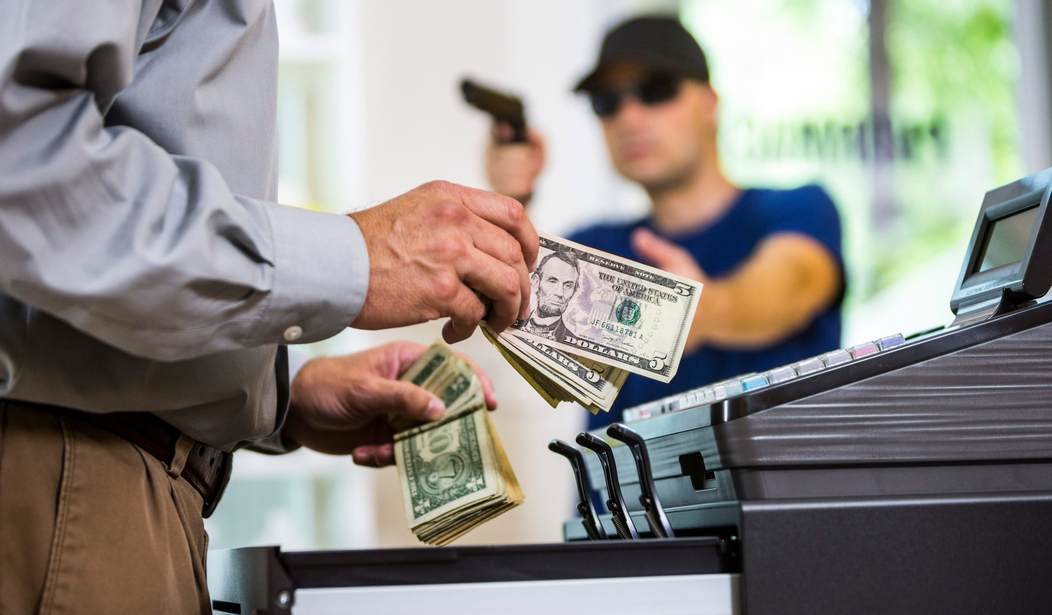A California city is seriously considering a program to pay residents “deemed most likely to shoot somebody,” on the premise that paying them will make crime less likely.
Michael Tubbs, mayor of the Bay Area city of Stockton, defended the idea of giving money specifically to the people most likely to shoot others. He would give a stipend of $1,000 per month to those who “stay the course” after an 18-month program.
“Stockton is about to award stipends of up to $1,000 a month to residents deemed most likely to shoot somebody,” the Los Angeles Times‘s Steve Lopez reported. “This program is called Advance Peace, and it’s modeled after a crime reduction program in the Bay Area city of Richmond.”
For his part, Lopez was skeptical, but perhaps not as skeptical as he should have been. “There’s a difference between a vision and a hallucination, and time will tell with Tubbs,” the Times reporter wrote. “But I like the young man’s mix of rebelliousness, impatience and willingness to take risks.”
The “Advance Peace” program certainly would be a risk. “The idea is that a small number of people are responsible for a large percentage of violence, and offering them an alternative path — with counseling and case management over an 18-month period, along with a stipend if they stay the course — can be a good investment all around,” Lopez explained.
“Let me be clear, Advance Peace is not a get out of jail free card,” Tubbs wrote on Stockton’s public safety website. “Participating in this program doesn’t erase the past, but it does help these young men learn how to make better choices for their own and our community’s collective future.”
While Lopez expressed a cautious optimism for the program, he included quotes from local critics. “Obviously, it’s a dumb idea,” deli operator Robin Luna-Gonzalez said about the Advance Peace program. “Why are we paying criminals?”
Herk Washington, Mayor Tubbs’ barber, expressed support for Advance Peace and for a general stipend to guarantee a “basic income” for all residents. He said paying criminals would cost a few dollars, but it might save lives and money.
“Nothing is guaranteed,” the barber said. “But to do nothing is worse than to do something.”
Are there really no other plans to “do something” to prevent homicide? One could argue that harsh punishments for murder help deter would-be criminals. One of the best arguments for public education revolves around the idea that schools should teach basic morality, instilling a respect for others into the young generation.
Paying would-be murderers a stipend might prevent them from shooting people, but such a policy raises important questions. Would these people be justified in engaging in violence if the program were ended? Why should the government subsidize violent people? How would the residents “deemed most likely to shoot somebody” be identified? How could the mayor prevent this program from becoming a subsidy to criminals, precisely because they committed crimes in the past?
Basic economy theory states that if you tax something, you get less of it because you decrease the incentives for it. Conversely, if you pay for something, you get more of it, because you increase the incentive for it. Subsidizing crime would likely make the city more violent, not less.
Tragically, the Los Angeles Times reporter Steve Lopez focused his article on general subsidies for residents — giving “at least $500 a month to a select group of residents,” allowing them to “spend it as they wish, for 18 months, in a pilot program to test the impact of what’s called guaranteed basic income.”
His article vociferously defended this idea, adding a few arguments against it. He mentioned Advance Peace occasionally, but focused on guaranteed basic income.
Tubbs defended the government paycheck idea by explaining it came from volunteer research assistants and reminded him of Dr. Martin Luther King Jr.’s book “Where Do We Go From Here: Chaos or Community,” in which the Civil Rights hero suggested something similar.
Lopez noted that the idea of stipends “isn’t exactly new,” since Canada and Finland have tried it. He even insisted that “on the right, it’s often framed as a substitute for existing safety net programs.” Lopez even gave the idea a tech twist, noting that “Facebook’s Mark Zuckerberg and Space X’s Elon Musk have pitched the idea in terms of inevitability, given the growing income gap and the threat of massive job losses because of automation.”
He had the good sense of noting that a universal basic income would undermine the dignity of work, but seemed to pit more sources for the socialist idea than against it.
The focus on “universal basic income” might not be misplaced, however. If the government is to guarantee an “income” to people, essentially handing out money with no strings attached, then the Advance Peace program might follow, in a bizarre big government ideology.
Basic free market thinking explains the fundamental weaknesses of both programs, even on their own terms. Both might subsidize bad behavior: Advance Peace paying for criminals, while guaranteed basic income paying for people who do not work. The article presented poor people whose struggles would be alleviated by such a program, but it did not dwell on would-be shooters, for some reason.
Many Americans may be open to the idea of government helping the unfortunate, hard working poor to get by, but they would likely — and rightly — cringe at the idea of paying would-be shooters to not become mass murderers.









Join the conversation as a VIP Member